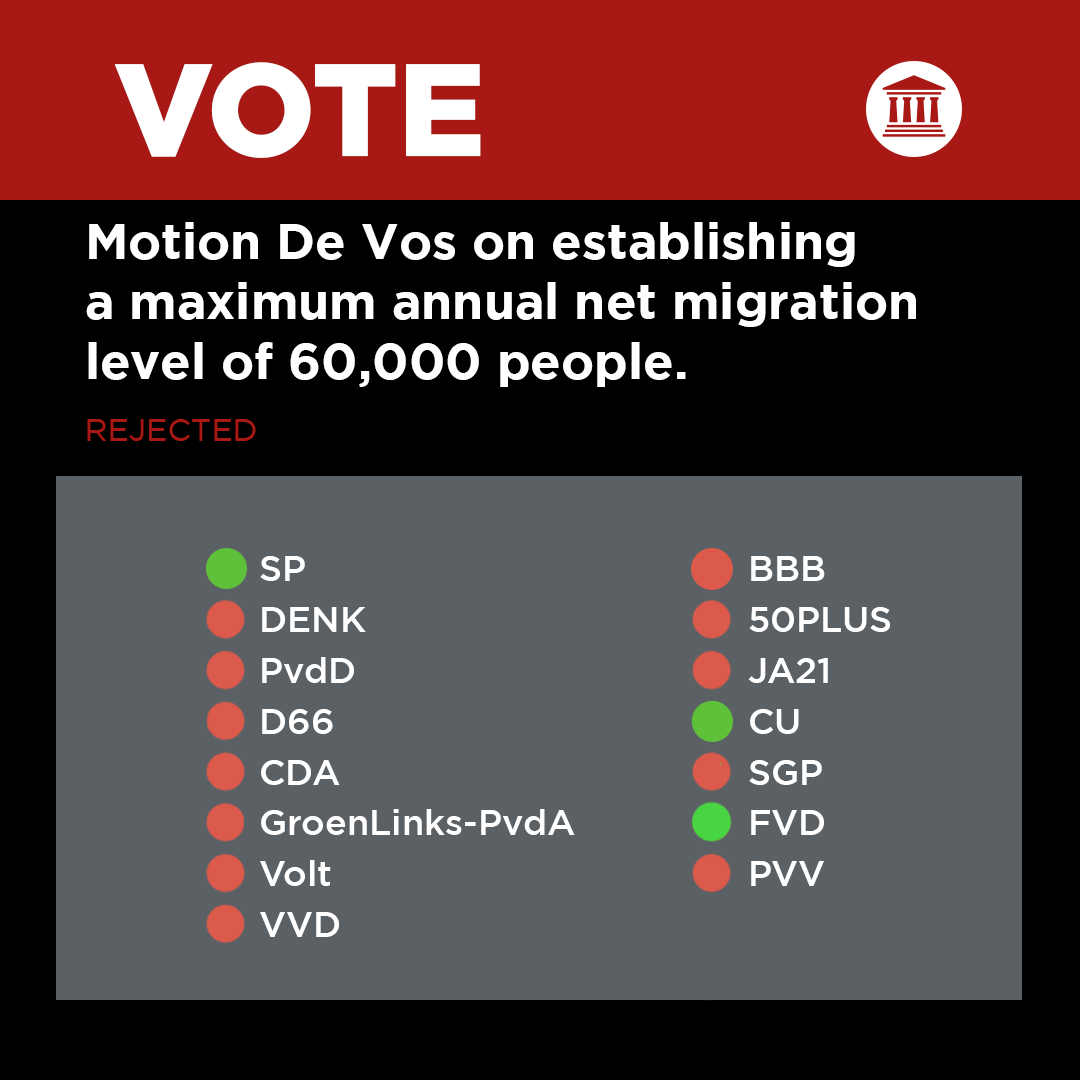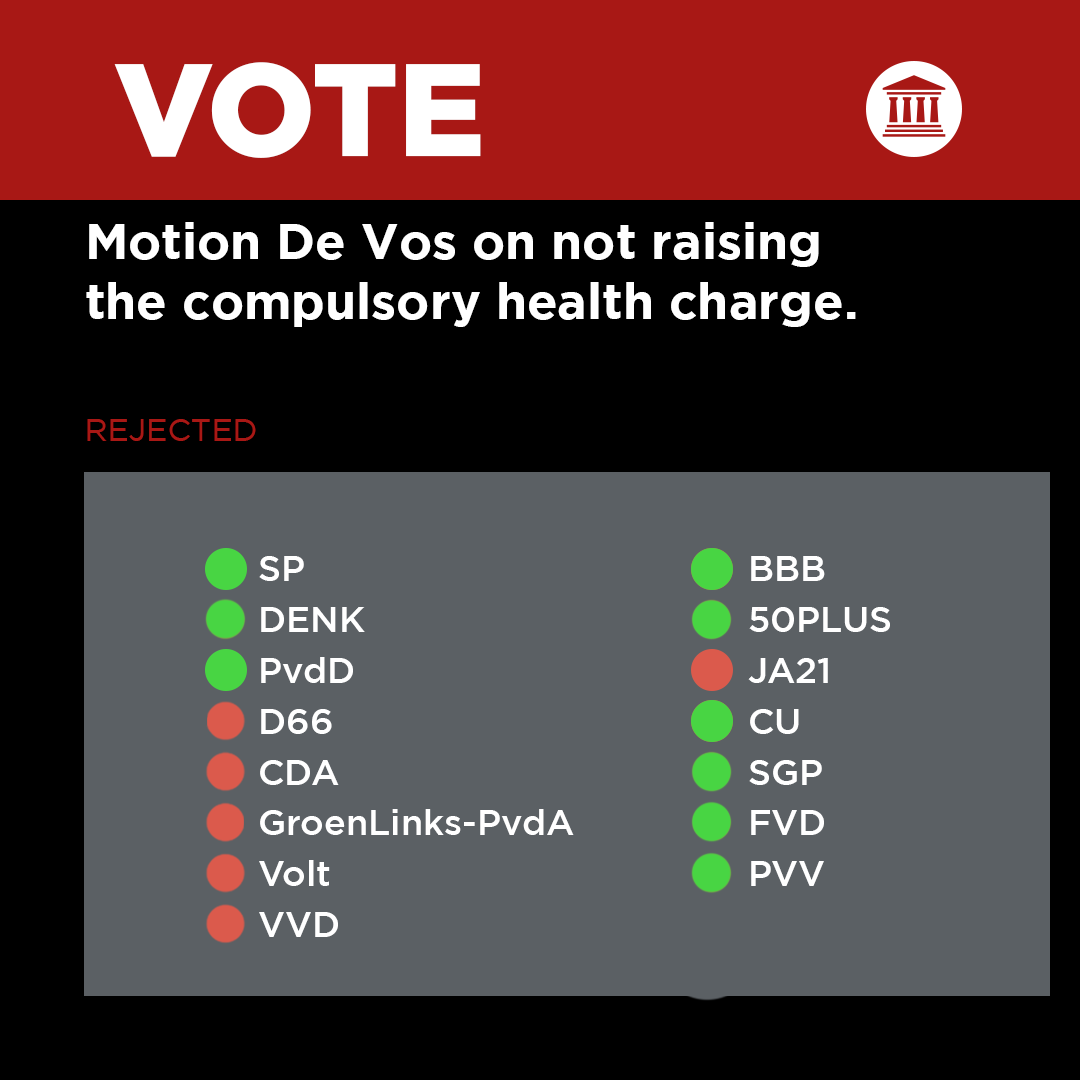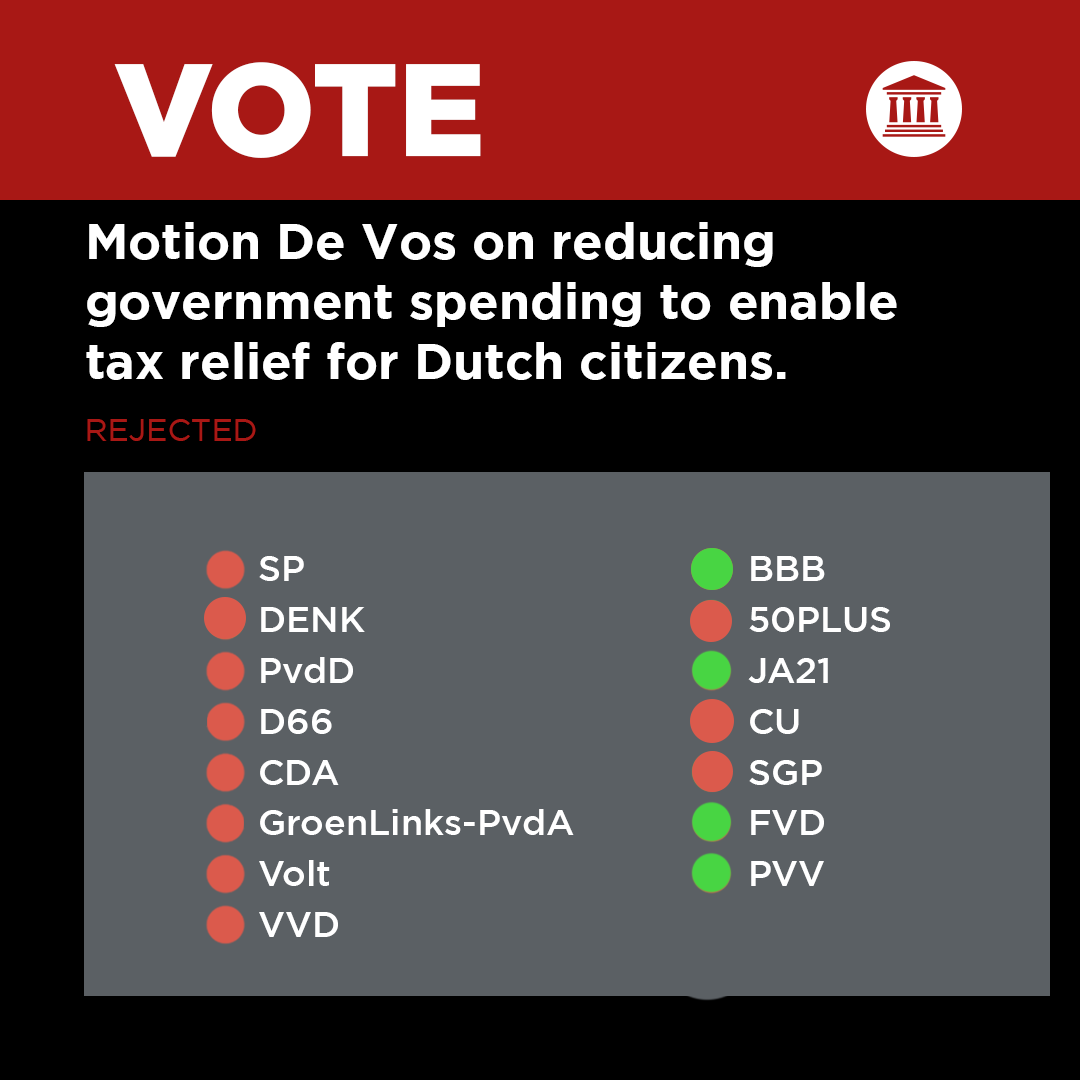The Election Outcome Deserves Immediate Substantive Action, Not Months Of Coalition Bargaining
20 november 2025 | Lidewij de Vos
Following the Dutch general election, MP Lidewij de Vos (FVD) warns that Parliament is failing to act on the clear mandates given by voters. Although the election results reveal substantial policy majorities, the House of Representatives is already shifting decision-making to negotiators and backroom talks. This undermines democratic accountability.
The recent elections in the Netherlands produced clear majorities on several major policy issues. When comparing the different party manifestos, it becomes evident what direction voters want the country to take. This is precisely the moment for the 150 newly elected MPs to honour that result. They should vote on these issues directly, rather than sidelining themselves for months of coalition bargaining, and then instruct the new government to turn these majorities into concrete policy.
Migration: a majority on paper, but no political courage
One of the most pressing topics is migration. Parties such as the VVD, CDA, GroenLinks-PvdA and ChristenUnie all campaigned on the idea of limiting annual net migration to around 60,000 people. FVD argues for a negative migration balance, but even this proposed limit would mark a significant improvement compared with the numbers of the past decade. With support from migration-critical parties, a solid majority should be within reach.
Yet the opposite occurred. Many parties that campaigned on this issue voted against De Vos’s motion. The gap between campaign promises and parliamentary behaviour becomes immediately visible once the formation process begins.

Mortgage interest relief: promises abandoned after polling day
A similar pattern emerged on the question of mortgage interest relief. The VVD openly campaigned in favour of maintaining it but still voted against the motion intended to secure this position. This is a prime example of what is going wrong: the post-election debate is no longer about the choices of the electorate but about political manoeuvring behind closed doors.

Nuclear energy, healthcare costs and tax relief: clear majorities ignored
On issues such as the expansion of nuclear energy, maintaining the current level of the healthcare deductible, and providing tax relief, there are also clear majorities based on party manifestos. Nevertheless, all of De Vos’s motions on these subjects were rejected last Thursday.
This shows, she argues, that Parliament hands over control almost immediately after the election. Instead of acting on the voters’ mandate, decisions are deferred to negotiators and informants. According to De Vos, this represents a serious democratic deficiency.

Restoring democratic leadership
At the heart of democracy lies a simple principle: elected representatives should make decisions on behalf of the electorate, based on substance and accountability. If Parliament stops deciding and transfers authority to a formation process shielded from public view, the core of that democratic promise is weakened.
Lidewij de Vos therefore calls for a political culture in which the House itself takes responsibility - directly, transparently and in line with the election outcome. Only then can the gap between voters and politics truly be bridged.
